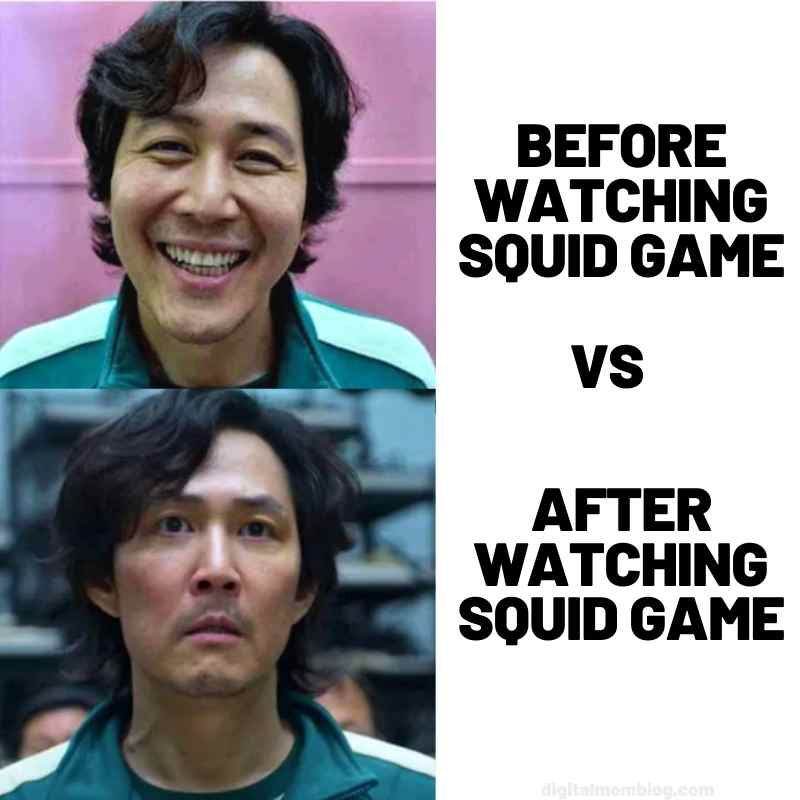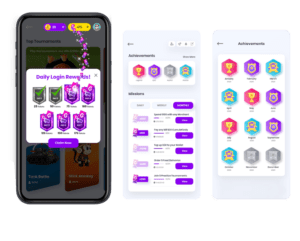According to Netflix’s co-CEO Ted Sarandos, “There’s a show on Netflix right now that is the number one in the world. Like, everywhere in the world. It’s called ‘Squid Game,’”.
Sarandos is not exaggerating. Squid Game is Netflix’s most-watched series to date. At this point, to call it a viral sensation is actually an understatement. Unsurprisingly, this series about a deadly game has resonated with viewers because of exaggerated and fantastic metaphors for particular life experiences. Additionally, the fact that it exploded in popularity despite very little marketing also gives us a little insight into how things really work in the real world.
So what does this show about a game (that we hope no one ever has to play) tell us about gaming and life?
Let’s find out.

Lesson 1: If people like something enough, you won’t have to spend on marketing
When compared with other popular shows, Squid Game has virtually no real marketing support beyond Asia before appearing on Netflix. And yet, it has become an entertainment icon. Word of mouth was more than enough to make it a wild success.
When designing your product, be it an app, website or even a consumable product, keep this in mind. Focus on making the customer happy, and the marketing will take care of itself. A large part of Squid Game’s popularity was generated by the memes that cropped up after it appeared on the platform. People loved it so much they just had to spread the love. And said love spread all the way until it turned the show into a household name.
Turns out, an easy way to get people to like your app/website/campaign is to gamify it. Make it fun for them to engage with what you’re offering, and they will like it enough to spread the word and boost your product’s popularity.
Lesson 2: Think Outside the Box
In the Honeycomb game, players licked the honeycomb so that it became easier to cut with a needle. Sounds like a creative solution? That’s because it is.
In life and especially in gaming, innovation pays off. With users bombarded with content every time they look at their smart device, your product needs to find ways to stand out, distract, enchant and engage. Gamification of apps and websites can contribute to this significantly, given that game elements are designed to provide users with excitement, anticipation, escapism and good ol’ fun.
Lesson 3: Your weakness can help you winn
In the tug-of-war contest, each competitor was assigned a role based on their strength. The losing team had 10 strong men while the winning team hada, among others, three women and an elderly man. So how did they win?
They took advantage of their opponents’ underestimation of them. The 10 strong men did not expect that the other team would be a challenge, and this notion is what caused their defeat.
In life, do exactly the same. If someone underestimates you, use it to up your games and achieve a surprising victory. Winning is always easier and more satisfactory when no one expects you to win.
Lesson 4: You can finish last and still win
Think of the Glass Bridge game. It was only possible to win it after watching how everyone else played, and avoiding their mistakes. This is a valuable lesson for life.
When it comes to life and gaming, watch those who come before you. They might be racing ahead at the moment, but if they make mistakes and endure failures, you will have the advantage of knowing what went wrong, and avoiding those mistakes.
For example, during a gamification project, do the research. Study what your predecessors did, what your competitors are doing and where they may have previously failed. Don’t offer discounts if a certain target audience has been shown to not care about it (such as people in very high income groups), even though gamification manuals use discounts as a major reward.
By not repeating mistakes made by others, you will be saving yourself time, effort, money and other resources. Once you know what doesn’t work, you can focus on what works.
Lesson 5: Slow Down
In the show, whenever anyone is in a hurry to get through the ordeal, they lose or at least, end up regretting that decision. This is just as true of real life.
Don’t rush through anything, especially important decisions and tasks. You’ll end up making mistakes, overlooking significant requirements and providing shoddy results. Real life isn’t fun and games (and neither is the show) which means you’ll have to approach it with a calm, turbulent-free and analytical mind. If you don’t, things don’t usually turn out too well.
Squid Game’s popularity is not just the result of a great script and excellent cinematography. It reflects important issues plaguing human life today (debt, capitalism, economic divide). The struggles of the characters and especially the protagonist ring true for millions of viewers, mainly because Squid Game is quite a treasure house of lessons about the complicated games we must play to live.







